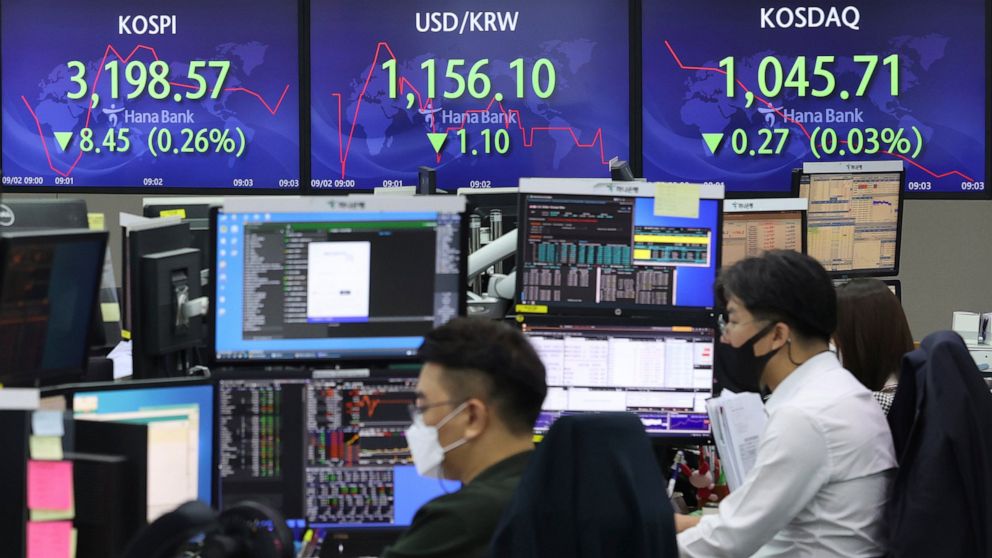Asian stock markets mixed after Wall St hits another record
Asian stock markets are mixed as investors await U.S. jobs numbers some appear to hope will be weak enough to persuade the Federal Reserve to postpone winding down economic stimulus
BEIJING — Asian stock markets rose Friday as investors awaited U.S. hiring data some appear to hope will be weak enough to persuade the Federal Reserve to postpone winding down economic stimulus.
Tokyo advanced after Wall Street hit a record. Shanghai and Hong Kong declined.
The U.S. government was due to report August hiring, prompting hopes a weak job market might delay the end of stimulus that supports stock prices. A survey earlier by payroll processor ADP found companies added fewer jobs than expected, while an industry group said manufacturing employment fell.
Investors are making “perverse bets” that low U.S. jobs numbers “will nudge the Fed to defer taper for longer, thereby buoying markets,” said Venkateswaran Lavanya of Mizuho Bank in a report.
Investor optimism had been boosted by strong U.S. corporate profits and the spread of coronavirus vaccinations. But the more contagious delta variant and measures to stop it are weighing on business and consumer activity.
The Shanghai Composite Index fell 0.2% to 3,591.26 while the Nikkei 225 in Tokyo added 0.9% to 28,787.35. The Hang Seng in Hong Kong declined 0.4% to 25,988.23.
The Kospi in Seoul advanced 0.7% to 3,199.16 and Sydney’s S&P-ASX 200 added 0.5% to 7,520.30. New Zealand rose while Southeast Asian markets declined.
On Wall Street on Thursday, the benchmark S&P 500 rose 0.3% to 4,536.95. The Dow Jones Industrial Average gained 0.4% to 35,443.82. The Nasdaq advanced 0.1% to a record 15,331.18.
The number of Americans seeking unemployment benefits fell last week to 340,000, its lowest level since the pandemic began and a sign the job market is rebounding.
Forecasters expect the Labor Department numbers to show U.S. employers added 750,000 jobs last month, pushing the unemployment rate down to 5.2%. That would be less than monthly average of 940,000 in June and July.
The Fed has indicated it might begin winding down bond purchases of $120 billion a month that pump money into the financial system but likely will keep interest rates low until a recovery is confirmed.
In energy markets, benchmark U.S. crude lost 3 cents to $69.96 per barrel in electronic trading on the New York Mercantile Exchange. The contract rose $1.40 on Thursday to $69.99. Brent crude, the price basis for international oils, advanced 13 cents to $73.16 per barrel in London. It rose $1.44 the previous session to $73.03 a barrel.
The dollar edged up to 109.99 yen from Thursday’s 109.97 yen. The euro advanced to $1.1879 from $1.1875.
![]()


